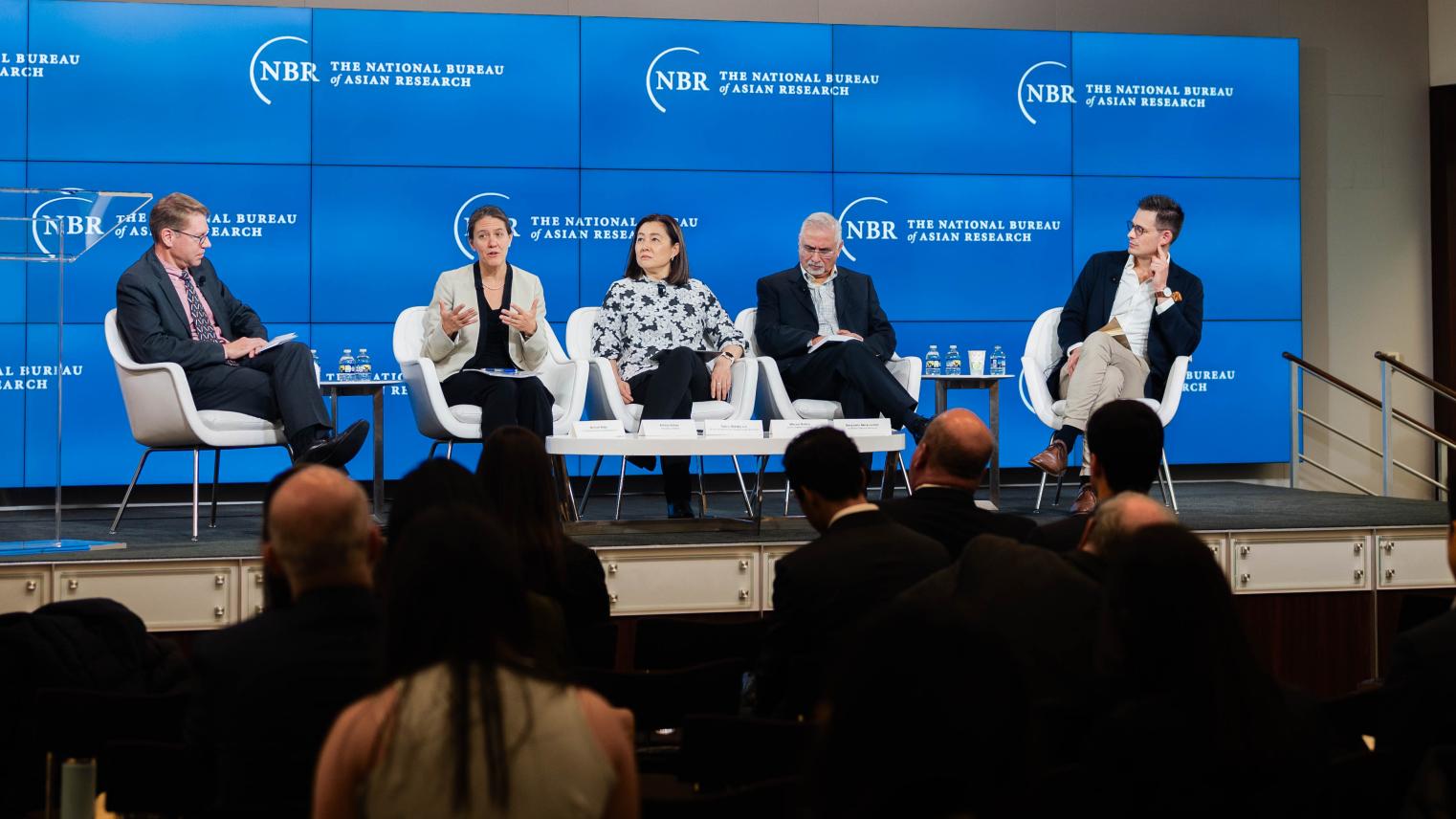ANU–Department of Defence Strategic Policy Grants Program

ANU School of Regulation and Global Governance (RegNet) Professor Anthea Roberts was awarded Strategic Policy Grants Program funding by the Australian Department of Defence. With geopolitical rivalries spilling into the economic and technological arenas, this multi-year project, which started in 2020, sought to evaluate the risks and opportunities found at the nexus of economics, security, and technology.
The grant team, which involved the ANU Geoeconomics Working Group—a unique interdisciplinary group with expertise in security, economics, cyber, political science and law— explored the key forces and trends shaping the emerging geoeconomic order. These included the instruments of economic statecraft, such as finance and industrial policy, and key geoeconomic challenges, such economic coercion, technological competition, and supply chain vulnerabilities. This project also examined the major policy challenges confronting Australia as it seeks to navigate the emerging geoeconomic order, while also supporting the development of frameworks to understand how economic relationships and their policy instruments can be sources of both leverage and vulnerability.
This was an exceptionally productive grant that far surpassed the required deliverables. Thanks to the substantial grant size and the ability to build a highly productive intellectual ecosystem, the research team produced far more than the number of required academic articles, policy reports, and pieces of short-form analysis. Research term members were regularly sought out by the Department of Defence and other Australian government departments and agencies to provide briefings and assist with policy development. This grant contributed to Australian government understanding of the emerging geoeconomic order and its challenges, as well as helping spur more informed policy debate about cross-cutting economic, security, and technological dynamics.
Throughout the duration of the grant, the research team was engaged in public and expert discussion on geoeconomics and related issues. Research team members were active in the media, regularly briefed and informally advised Australian parliamentarians, and participated in numerous public events and podcasts discussing geoeconomics and associated policy issues. Long after its conclusion, this grant will continue to build Australia’s intellectual capability to tackle complex geoeconomic challenges. Leveraging work done as part of the grant, research team members are continuing to develop new and globally influential frameworks to help Australia navigate the complex tradeoffs at the intersection of economics, security, and technology.
At the completion of the grant, members of the research team reflected on the significance and impact of the project:
“At almost exactly the same time as this grant was commencing, Australian exporters began experiencing blockages in their trade with China, in what would become widely understood as a campaign of economic coercion. Australia has been at the frontlines of geoeconomic competition, meaning this grant was perfectly timed in its support of the cutting-edge research being undertaken by ANU’s geoeconomics working group. For example, the grant supported my research to understand how Australian exporters navigated the coercion campaign, which is important for cultivating national resilience to the weaponisation of economic relationships.” – Darren Lim, ANU School of Politics and International Relations.
“Our world is increasingly complex, and it's difficult to keep up with the pace of technological, economic, and geopolitical change. This project offered new insights into these changes, from new forms of economic coercion to shifting technological leadership. Just as important, it introduced a new framework that a range of actors can use to develop greater resilience as they contend with this changing world.” – Andrew Kennedy, ANU Crawford School of Public Policy.
“This project began at just the right time to contribute to critically important policy debates at the intersection of economics, security, and technology. Whether it’s the decision to exclude certain Chinese technology companies from Australia’s 5G network or the question of how to respond to China’s economic coercion campaign, many of the toughest policy questions for Australia involve complex economic, security, and technological calculations. As well as making possible an impressive record of world-class and high-impact research on these and many other geoeconomic issues, this project helped build much-needed Australian expertise on some of the most pressing geoeconomic challenges of our time.” – Benjamin Herscovitch, RegNet.
Image: Dr Benjamin Herscovitch (first from right) at the launch of Strategic Asia: Reshaping Economic Interdependence in the Indo-Pacific 2024.
Photo credit: The National Bureau of Asian Research.